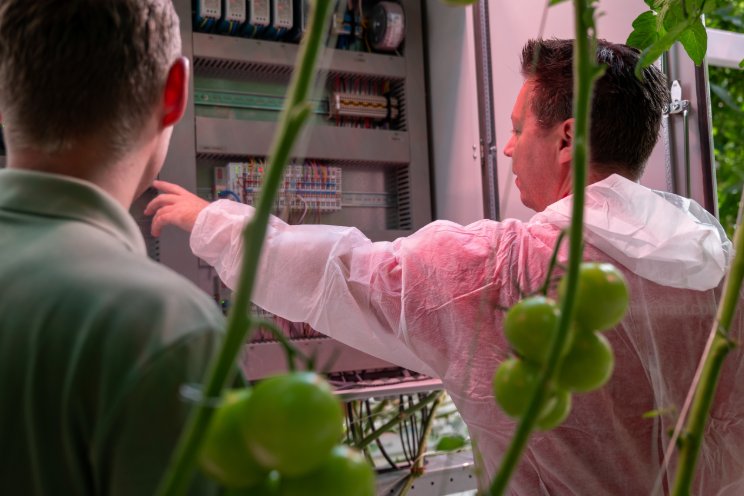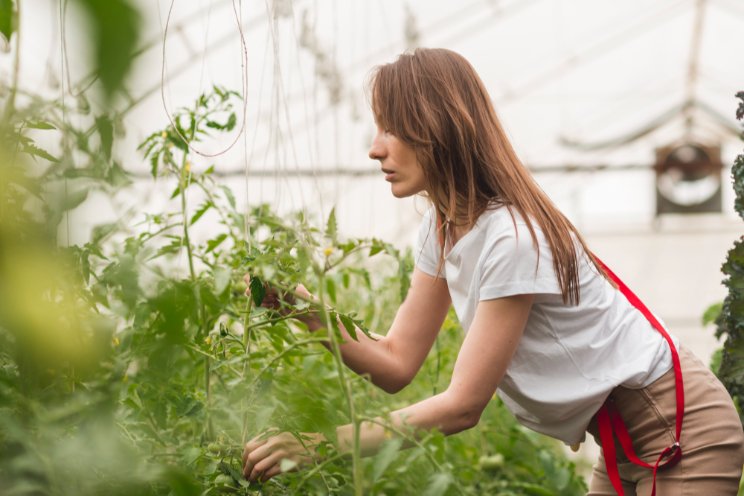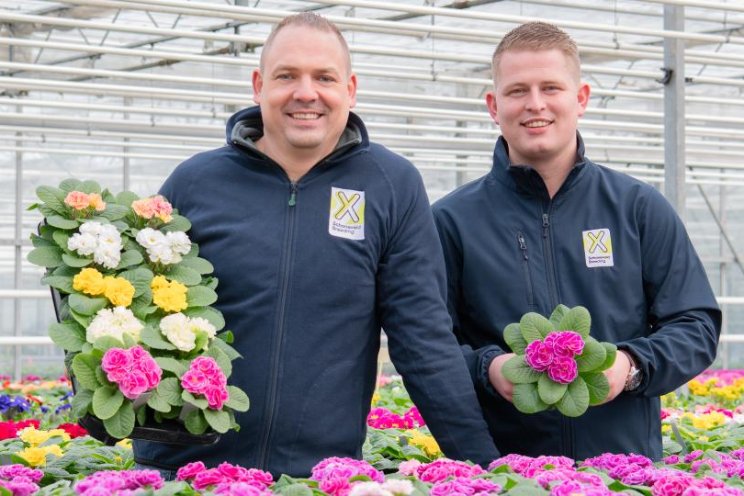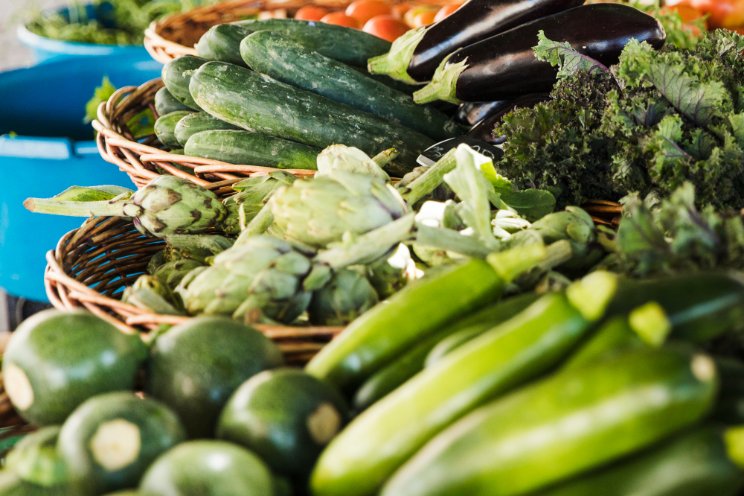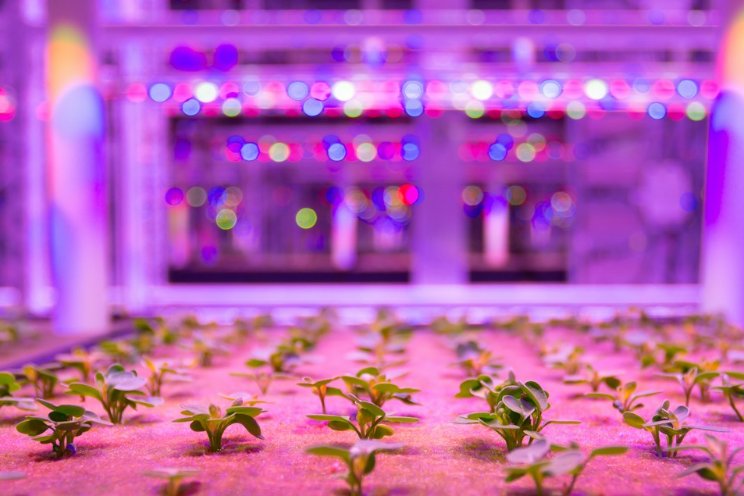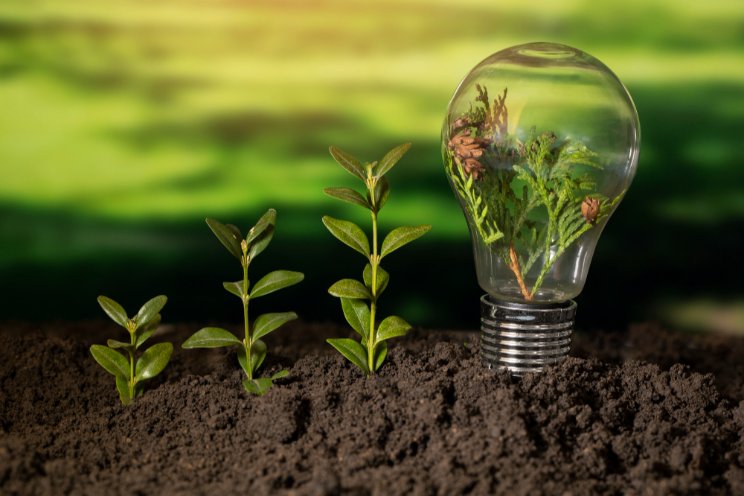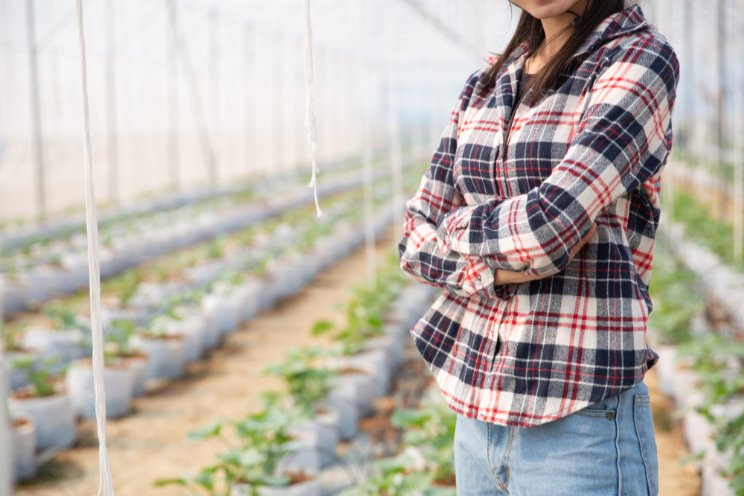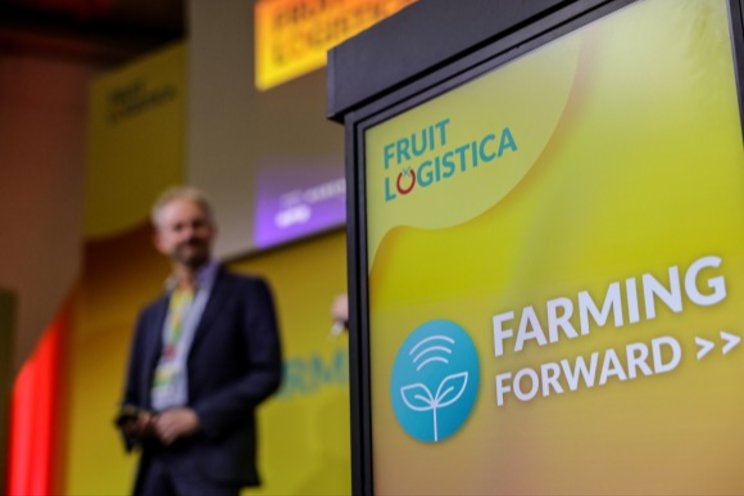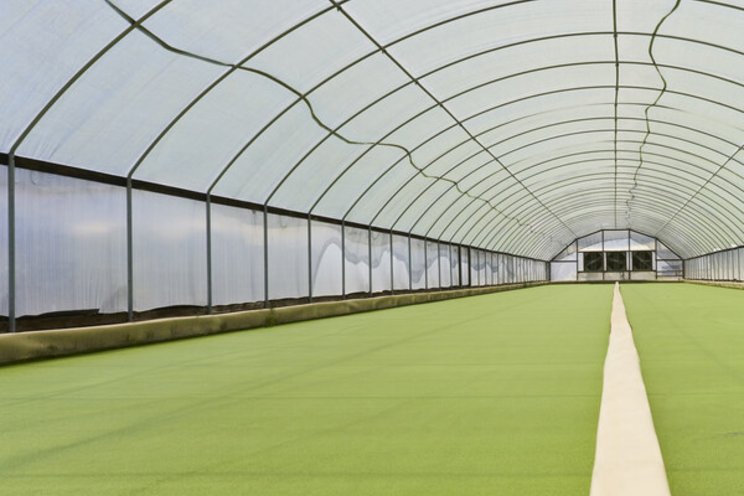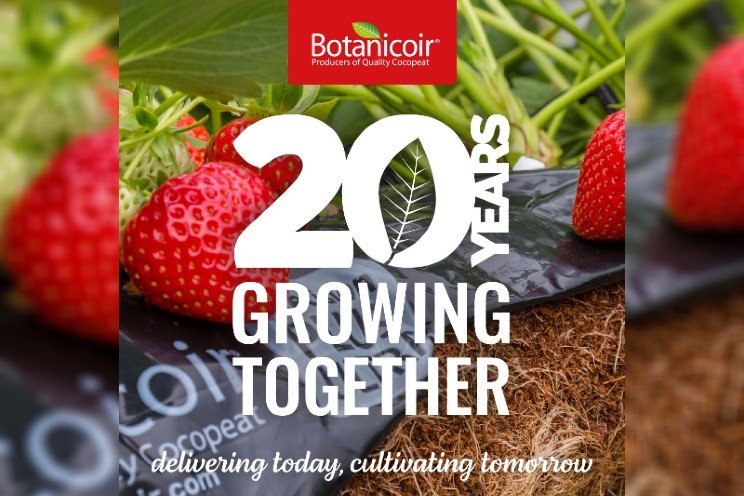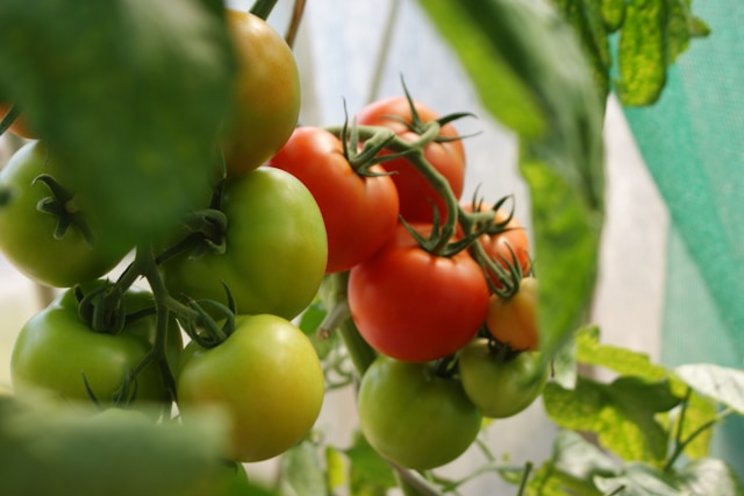Vertical farming takes root in Taiwan
Added on 07 February 2021
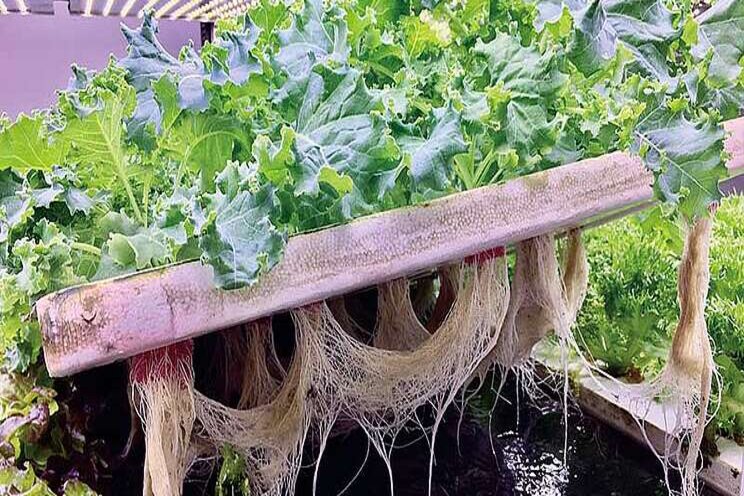
After becoming a world leader in semiconductors and other electronic products, Taiwan is now looking to smart agriculture as its next vine to climb. The island aims to supply much of the world's fruit and vegetables within the next 30 years.
This might seem rather unlikely until you consider that the future of farming is not land and labor but factories and robots. Furthermore, Taiwan already possesses in abundance the tools that tomorrow's smart farmers will use, including solar and advanced light technology, chemicals, gene editing, drones, smart sensors, software, algorithms, data mining, and big data.
Many of these technologies are being put to use in a glittering new 14-story vertical farm at Copenhagen Markets in Denmark's capital. The first phase of construction of the 7,000-square-meter facility finished in early December. It is one of Europe's biggest and most efficient vertical farms and was built using a blueprint of patented technologies from Taiwan's YesHealth Group.
The result of a partnership between YesHealth and Danish agritech startup Nordic Harvest, the farm looks like a fancy warehouse from the outside. The interior is fitted with rows upon rows and columns upon columns of trays containing leafy greens, growing under an intense battery of more than 20,000 smart LED lights. The plants are tended by engineers in lab coats and guided by software that processes over 5,000 individual data points to optimize plant health.

Rows of fresh produce grow under batteries of LED lights at iFarm. Photo: Jules Quartly
The LEDs provide variable spectrum light for 100 different kinds of plants, nanobubble hydroponics oxygenate the roots and inhibit bacterial growth, and liquid microbial fertilizers derived from oyster shells, brown sugar, and soy milk provide essential nutrients for plants and soil. Even the music played to the plants is science-infused, with classical or light jazz music ranging between 115 and 250 Hertz seeming to work best.
Production at the new vertical farm is set to begin in the new year and will scale up to around 3,000 kilograms of leafy vegetables per day by the end of 2021, equating to approximately 1,000 tons of greens annually. Crucially, unlike most farms, these figures are close to guaranteed since production is not at the mercy of climate, the weather, pests and disease, pesticide residue, nitrate levels, or hundreds of other variables that affect traditional farming.
According to Jesper Hansen, YesHealth Group's Chief Communications Officer, the partnership with Nordic Harvest has been a productive one so far. It took just five months to install the farm and all the produce is pre-sold to ensure the operation is profitable by Q3 of 2021.
"This collaboration is just the start of a long-term journey together," Hansen said in an email from Denmark. He notes that the two partners plan to expand to other Scandinavian countries over the next several years.
Hansen credits Taiwan for its efficient development of the technology and know-how to reproduce vertical farms all over the world and calls the Danish development "a crucial milestone in our international expansion." He adds that the company is eyeing new partners in Europe, Asia, and the MENA (Middle East and North Africa) region.
YesHealth is the brainchild of serial tech entrepreneur Winston Tsai, who started an LCD screen company at age 21. His "eureka moment" came after being diagnosed with liver cancer and partly linking his illness to pollution in foods. After recovering, he made it his mission to produce affordable, pesticide-free produce by harnessing the power of technology.
He founded YesHealth Agri-Biotechnology Co. Ltd. in 2011 and six years later established YesHealth iFarm in Taoyuan's Luzhu District. The iFarm cultivates an ever-expanding range of leafy vegetables and herbs in a 2,500-square-meter warehouse factory. It produces 1,500 kilograms of leafy greens per day, a yield which the company says is 100 times more efficient than a traditional farm using the same space and requires only 10% as much water. In addition, YesHealth has a farm in China's Shenzhen, which harvests up to 2,500 kilograms per day.
YesHealth's products are sold to major retailers both in Taiwan and abroad, including restaurants, hotels, and airports. Its stated aim is to supply a total of 7,000 kilograms of leafy greens per day worldwide in 2021.

Diners enjoy a meal at iFarm's restaurant, which overlooks the vertical farm. Photo: Jules Quartly
Having sampled the produce at the iFarm, I can confirm the arugula grown there is as tasty as any I have tried, while the lettuce and leguminous alfalfa is a perfectly clean, green, and crunchy eating experience - the result, I was informed, of an optimal growing environment and harvesting at exactly the right time.
In a sense, it's back to the future for Taiwan, which had a largely agricultural economy up until the 1950s. Agriculture was one of the pillars supporting the nation's economic miracle after World War II. With the help of mechanization and productivity gains, agricultural production at that time contributed around a third of Taiwan's GDP.
In more recent times it has accounted for just 1.8-1.9% of GDP. That greatly reduced figure, which includes animal husbandry, fishing, and forestry, is not due to a decline in agricultural output per se, so much as the growth in manufacturing and the emergence of a pervasive service sector.
Taiwan has a wide range of rich, often volcanic soils that are exceptionally fertile, along with a subtropical climate that provides plentiful sun and rain. It is known as the "Fruit Kingdom" because of the quality of its fruit, with dozens of varieties ranging from bananas and papayas to wax apples and guavas. More than 100 kinds of vegetables grow all year round.
On the other hand, Taiwan's mainly mountainous geography means just 25% of the land is suitable for farming. Meanwhile, climate change is affecting agricultural production by increasing summer temperatures and making rainfall more unpredictable. At the same time, considerable soil erosion, acidification, contamination by chemicals and heavy metals, and strong pesticide use have diminished soil quality over the last 50 years.
Furthermore, the proportion of Taiwanese involved in farming has rapidly declined, from 37% of the population in the early 1970s to the current 15% or less, according to the Yearbook of the Republic of China. Not only is the farming population declining, it's aging as well.
Those factors may not pose as much of an issue, however, since the old model of agriculture is being disrupted so dramatically that even economies of scale are being upended. Given the large size and advanced technology of the U.S., it may come as no surprise that it is the world's biggest exporter of food as measured by value. Second on the list, however, is the Netherlands, which has just 0.045% the area of the U.S.
According to a National Geographic report in September 2017, the Netherlands' achievement can be attributed to the work coming out of Wageningen University & Research, 80 kilometers from Amsterdam in the heart of Food Valley - the world's agricultural equivalent of Silicon Valley in California. The university strives to come up with ways to increase yields and sustainability, and then to disseminate that knowledge.
Click here to read more.
Photo: Exposed root system for hydroponically grown plants at YesHealth's iFarm in Taoyuan. Credit: Jules Quartly
Source: Taiwan Business Topics
More news
